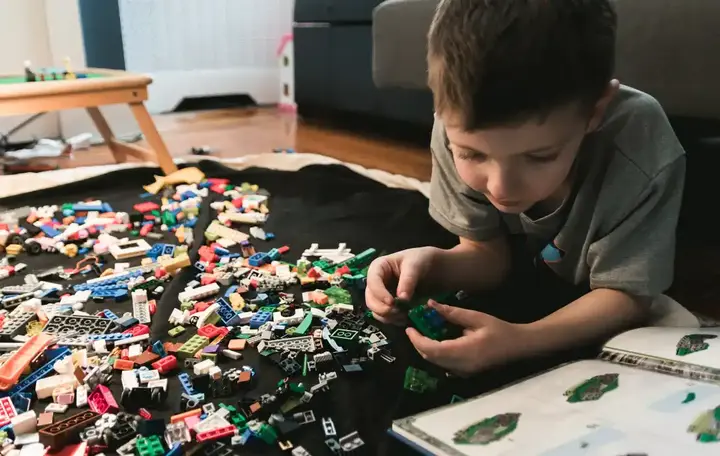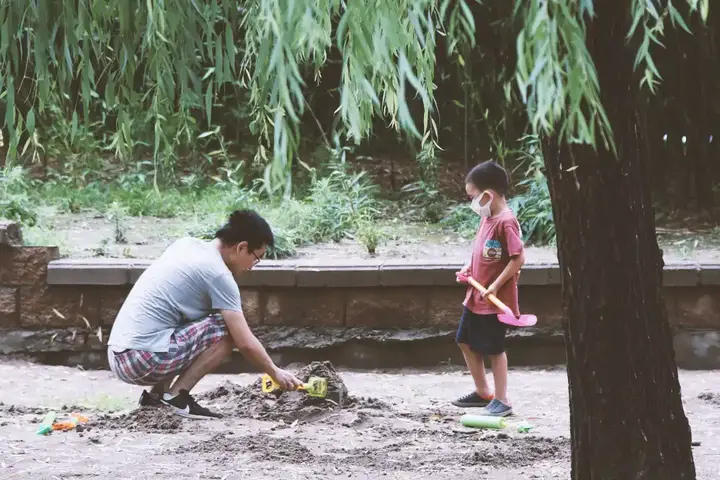How I Taught My Son to Think: A Journey Toward Intellectual Independence
Raising children is one of the most complex and exciting challenges for parents. Every parent wishes to raise a child who is able to make his own decisions and think independently and critically. These skills are not easily acquired, but require continuous efforts and wise guidance from an early age. In this article, I will share my personal experience teaching my son how to think independently, and the importance of this in developing his mental and social abilities. I will review the techniques I have used to enhance their problem-solving and critical thinking skills, from giving them the opportunity to solve their problems on their own, to providing a good model of thinking, listening to them before giving advice, and finally gently challenging them to develop their critical thinking. I believe that these methods helped him become an independent and confident individual. This experience may be useful for parents who want to develop their children's intellectual skills and prepare them to face life's challenges with confidence and independence.
Recommend
Show key points
- The writer emphasizes that teaching children to think independently is a gradual process requiring consistent guidance and patience.
- Allowing children to face challenges without constant interference helps build their problem-solving abilities and fosters independence.
- By modeling independent thinking and decision-making in daily life, parents can inspire their children to adopt similar critical thinking habits.
- ADVERTISEMENT
- Active listening to children before offering advice strengthens their confidence and encourages them to express their thoughts openly.
- Asking thoughtful questions and presenting age-appropriate challenges nurtures children's critical thinking and decision-making skills.
- The author believes that developing independence and intellectual capacity in children is an essential investment in their future success.
- Through practical examples, the writer shares how such parenting techniques can contribute to raising responsible, self-assured individuals.
1. Step 1: Give up excessive interference

It's hard for parents to watch their children suffer from frustration or difficulty solving a particular problem, but it's important to learn how to let them try and make mistakes themselves. When my son was young and had difficulty using jigsaw toys, I tended to step in and help him put the piece in place. But I realized that this is not the best way to teach him to solve problems. Instead, she began to provide simple oral guidance without direct intervention, which helped him develop his problem-solving and independence skills.
2. Setting a good example: providing a model for independent thinking

Children learn a lot through observation and imitation. So, I decided to be a living model of independent thinking in front of my son. I made sure to explain to him the reasons why I made certain decisions and discuss possible alternatives. For example, when I was deciding to buy a particular product, I would explain to him how to compare the quality, price, and benefits of each option. This method not only helped him understand how to make decisions, but also encouraged him to ask questions and think critically about the options available. In addition, I was sharing with him my personal experiences in facing challenges and solving problems, explaining the steps I followed to reach solutions. By introducing this practical model, I began to notice that my son began to take the same approach in his daily life, which helped him develop his self-confidence and intellectual independence. Our ongoing discussions have also helped enhance his ability to think critically and creatively, which better prepares him to face life's future challenges with confidence and awareness.
3. Listen before speaking: give the child the opportunity to express

The skill of active listening to children is one of the most important tools that parents can use to promote independent thinking in their children. When my son had trouble, I made sure to listen to him deeply and understand his feelings and thoughts before giving any advice. This style not only boosts his self-confidence, but also encourages him to freely express his opinions and ideas. For example, when my son had trouble with his friends at school, I would sit with him and listen to his entire point of view before giving him any guidance. This approach helps the child feel the importance of what he says and gives him the opportunity to independently think about the problem and its solutions. Listening before speaking also contributes to building a strong and trusting relationship between parents and children, as the child feels heard and appreciated. After listening, I would give my advice in a calm and simplified manner, giving him the opportunity to choose the solution he deems appropriate and enhance his ability to make decisions with confidence. This process contributes significantly to the development of his social and mental skills, and makes him an individual capable of thinking and acting independently in various situations.
4. Gently challenge the child: encourage him to think critically

Encouraging the child to think critically requires presenting challenges appropriate to his age and abilities. When my son faced daily decisions, I would ask him questions that would motivate him to think about the consequences and alternatives. I was asking him to explain why he chose a particular solution and how he could approach the situation in different ways. This approach helped him develop his ability to think critically and make informed decisions. In addition, she encouraged him to participate in activities such as debates and plays that enhance his confidence in expressing his opinions.

Teaching children how to think independently and independently is a long-term investment in their future. By letting go of excessive interference in their lives, setting a role model in making decisions, listening to their opinions and feelings before giving advice, and challenging them in thoughtful and gentle ways, parents can help their children develop critical thinking skills and independence. These skills not only enhance their abilities to solve everyday problems, but also prepare them to be successful and responsible individuals in the future. Seeing our children thrive and be able to make their own decisions with confidence and awareness is the ultimate goal of every parent. Raising children who are able to think for themselves is the basis for building a conscious and creative society. We hope that this experience will inspire other parents to adopt similar methods in raising their children, believing that every effort we make today in their education will have a significant impact on their future lives.








